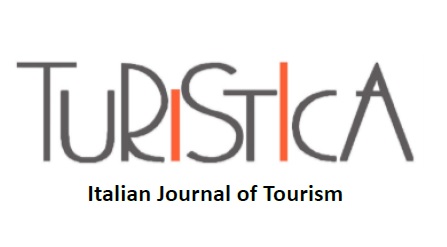Per una nuova Governance dei territori: la valorizzazione culturale di alcune Regioni del sud
pubblicato nel numero 2017 anno 2/3

A new governance policy: the cultural development and promotion of several regions in Southern italy
The article illustrates the initiative launched by MiBACT in 2016 in support of a unified project of cultural development and promotion of the regions of Basilicata, Calabria, Campania, Puglia and Sicily. Particular emphasis is laid on the objectives, the projected results and the beneficiaries of the resources to be allocated, and the contents of the first three projects that have been approved for funding. The criteria used for the analysis are based on tried and true rules of effective management.
The basic concept is to encourage, by using the “avviso pubblico” procedure, a transition from traditional forms of government to more modern modes of cultural administration with the adoption of more open platforms that encourage participation, above all in regards to administration and financial matters, all while keeping in mind the rules of effective management or “good governing.”
In total, 59 proposals were presented; 28 were taken into consideration, 10 were excluded for issues regarding procedure and another 21 were rejected.
The paper analyzes several of the proposals presented and evaluates the application of the principles of good administration.
The implications of the putting the Mibact project into practice are meant “to elevate the quality of programming at a local public administrative level in the field of culture on a regional or local level.” This will strengthen the capability to promote integration among territorial resources, policies and protagonists from both the private and public sectors involved in management and in government. The purpose is to foster the advancement of an integrated and sustainable administration of cultural heritage by public authorities, private individuals/companies or a mix of the two.
The “adviso pubblico” procedure dovetails with a number of obvious requirements, which must be taken into account when creating projects in the field of culture. Above all it aims to satisfy a lack of “wide-range” planning also taking into account far reaching economic, financial and administrative aspects.
The article illustrates the initiative launched by MiBACT in 2016 in support of a unified project of cultural development and promotion of the regions of Basilicata, Calabria, Campania, Puglia and Sicily. Particular emphasis is laid on the objectives, the projected results and the beneficiaries of the resources to be allocated, and the contents of the first three projects that have been approved for funding. The criteria used for the analysis are based on tried and true rules of effective management.
The basic concept is to encourage, by using the “avviso pubblico” procedure, a transition from traditional forms of government to more modern modes of cultural administration with the adoption of more open platforms that encourage participation, above all in regards to administration and financial matters, all while keeping in mind the rules of effective management or “good governing.”
In total, 59 proposals were presented; 28 were taken into consideration, 10 were excluded for issues regarding procedure and another 21 were rejected.
The paper analyzes several of the proposals presented and evaluates the application of the principles of good administration.
The implications of the putting the Mibact project into practice are meant “to elevate the quality of programming at a local public administrative level in the field of culture on a regional or local level.” This will strengthen the capability to promote integration among territorial resources, policies and protagonists from both the private and public sectors involved in management and in government. The purpose is to foster the advancement of an integrated and sustainable administration of cultural heritage by public authorities, private individuals/companies or a mix of the two.
The “adviso pubblico” procedure dovetails with a number of obvious requirements, which must be taken into account when creating projects in the field of culture. Above all it aims to satisfy a lack of “wide-range” planning also taking into account far reaching economic, financial and administrative aspects.
Per scaricare l'articolo visita http://turistica.it/prodotto/nuova-governance-dei-territori-la-valorizzazione-culturale-alcune-regioni-del-sud/

